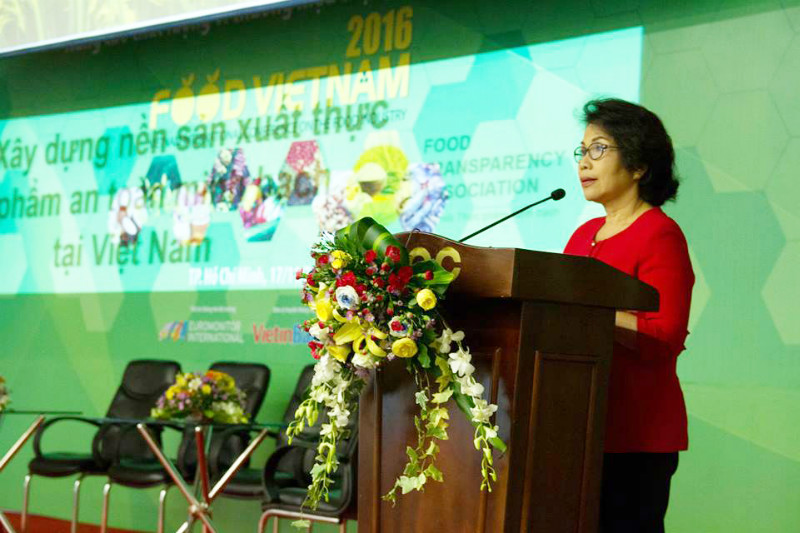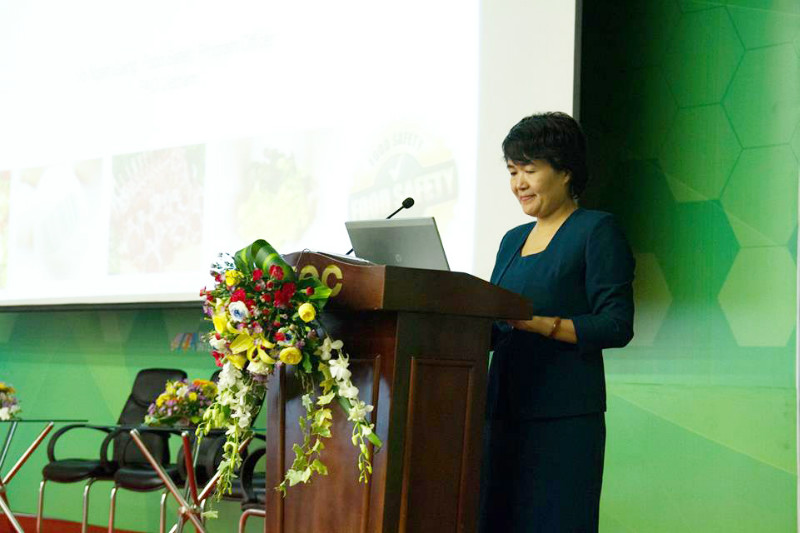According to the Quality and Agriculture, Forestry and Fisheries Agency, Ministry of Agriculture and Rural Development, the country has 621 companies producing clean food.
The Food Safety Agency of the Ministry of Health says that 2,465 establishments have been certified to be qualified for food safety. The Cultivation Agency - Ministry of Agriculture and Rural Development has certified 1,585 establishments meeting GAP; a website of an organization shows that 3,500 VietGap certificates have been granted.
With above data of State management agencies, the number of clean food producers all over the country is pretty many, along with that, as prescribed by the law, if food production and trade establishments want to operate, they must be certified food safety and food hygiene. So why is there still unsafe food?

Explaining the causes of this situation, Ms. Nguyen Hong Minh - Former Deputy Minister of Fisheries said that the control of food safety at present was only done by campaigns and applied to each shipment, not mandatory to be controlled under processes (HACCP, GAP) and reported regularly to the authorities. Besides, there was no effective control at the first point of the food chain, such as borders, wholesale markets, ports including fishing ports, and medicines, food chemicals, fertilizer manufacturing and trading establishments. Food was not mandatory for traceability and there are too many agencies responsible for food safety.
In addition, although there were clean food manufacturers but due to no clean production chain so a part of production links is being dragged into the whirlpool of dirty food production for profit; Consumers still had the habit of emotional consumption, were lured by mass media while some mass media lacked responsibility and knowledge of food safety; food manufacturing companies were mainly small businesses, did not have the skills and resources to do PR, marketing and to turn back to dirty food...
It was found that food safety was becoming the deciding success or failure for the Vietnam food industry in the process of open competition with serious competitors in international floor.

Ms. Vo Ngan Giang, in charge of safe food program of Food and Agriculture Organization of the United Nations (FAO) in Vietnam, said the opportunity to penetrate in foreign markets of Vietnam's agricultural products had been recently affected by a number of non-standard products for food safety. For example, in 2015, a number of fishery products were returned due to exceeding antibiotic residues limitation and there was also a case of rice recently.
Ms. Giang said that the production capacity development in rural areas was a key issue to improve the quality of agricultural products, and for 10 years, FAO had supported several projects of food safety for Vietnam. "Private partner groups such as cooperatives, businesses have a very important role in linking and supporting farmers to engage in clean food production program. Besides, to have safe food products, it is essential to pay attention to the quality control of different links in the supply chain, and especially to the traceability to attach responsibility and ensure the safety of final food products, "suggested Vo Ngan Giang.
As a country having safe food production in the world, Dr. Giuseppe Ruocco, Director of the Food Hygience, Safety and Nutrition Department under the Italian Ministry of Health, said since 2002, the European Union had adopted a series of new rules, known as the "Food Safety Package". This package included a number of provisions of general standards for food hygiene in processing and control across the entire EU. In addition to general provisions, depending on the field there were also other particular provisions, suitable for each particular type of food and the member state.
According to Ms. Nguyen Hong Minh, improving food hygiene and safety and enhancing the reputation for the food industry involved many stakeholders, but most importantly, the State management agencies and producers. Accordingly, state management agencies must adjust their approach, instead of just checking final product, controlling by campaigns. The control should be done systematically. Besides, the State should not "embrace" all current management work. They should pay attention to the development of independent organizations built from the connection of individual producers to form associations. Those associations would develop benchmark standards for each sector and control them.
Along with that the State must publish on the compulsory term manufacturers must meet standards for food safety. Marketing, branding and communication, competition in the market are significant problems with the food businesses so the government does not function in control only but also needs to support related parties in the clean food supply chain.